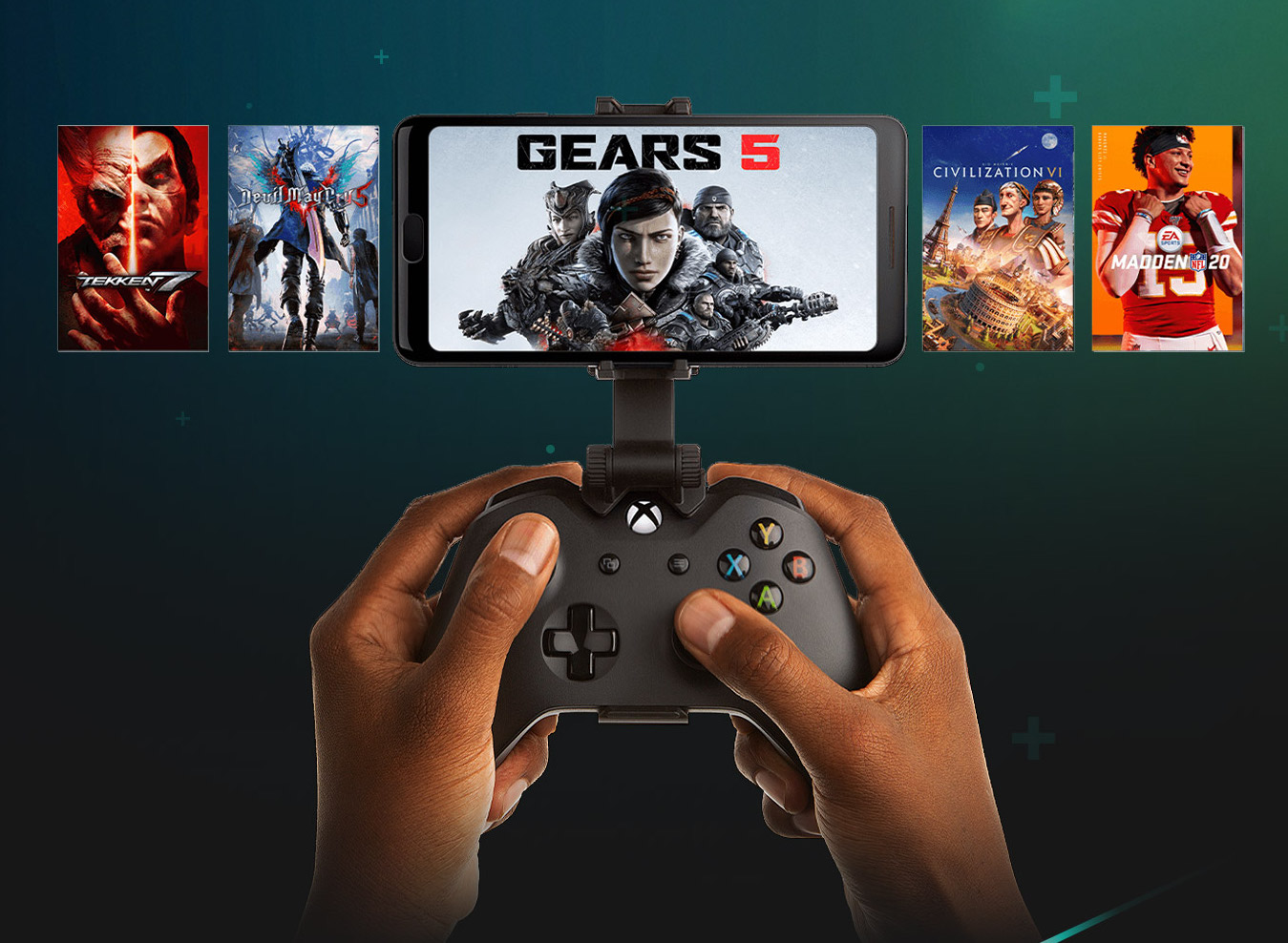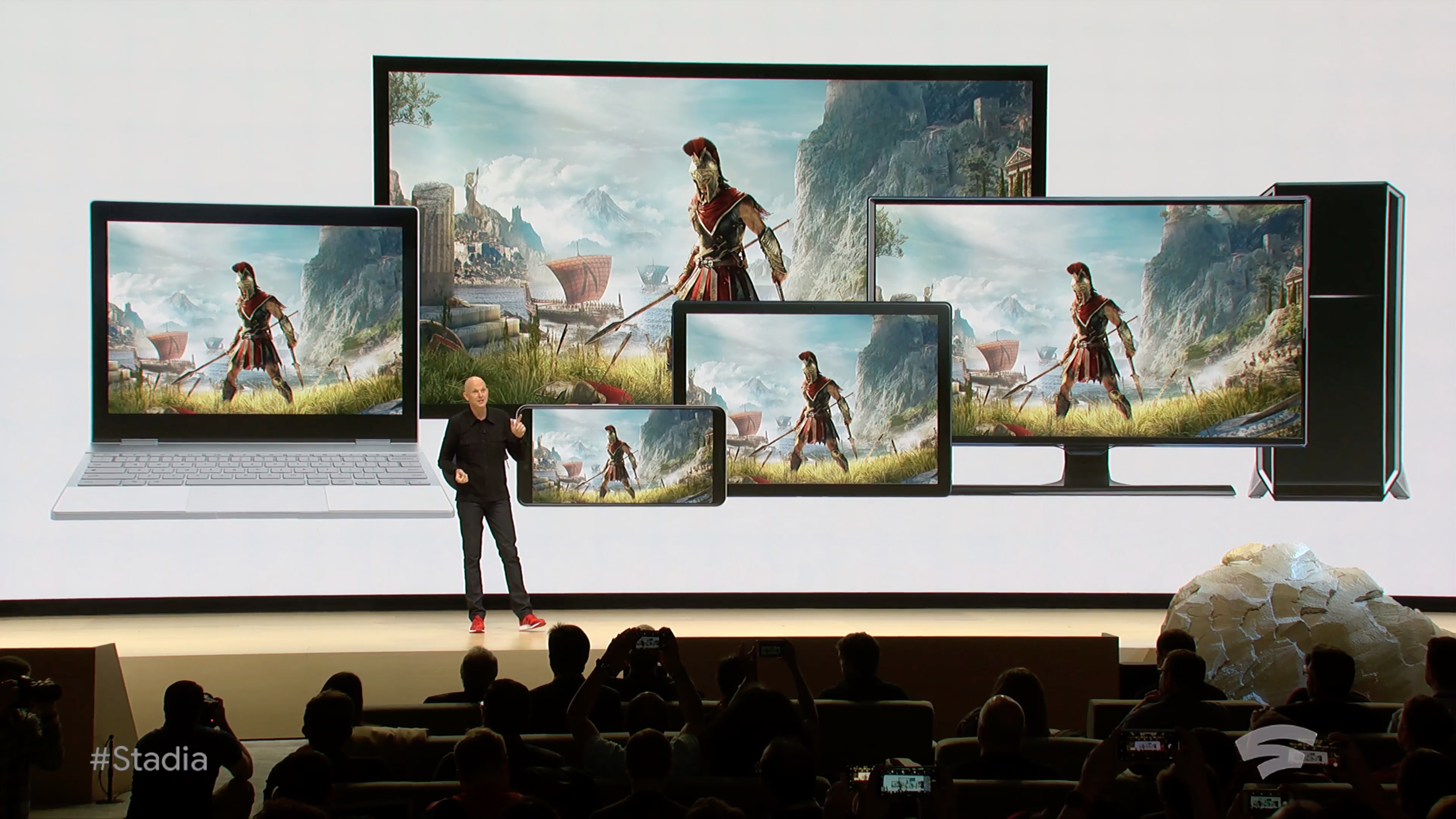TechCrunch
TechCrunch
The company made the news a couple times late this week for App Store approvals. Once for denying a gaming app, and the other for approving one.
The denial was Microsoft’s xCloud gaming app, something the Xbox folks weren’t too psyched about. Microsoft xCloud is one of the Xbox’s most substantial software platform plays in quite some time, allowing gamers to live-stream titles from the cloud and play console-quality games across a number of devices. It’s a huge effort that’s been in preview for a bit, but is likely going to officially launch next month. The app had been in a Testflight preview for iOS, but as Microsoft looked to push it to primetime, Apple said not so fast.
The app that was approved was the Facebook Gaming app which Facebook has been trying to shove through the App Store for months to no avail. It was at last approved Friday after the company stripped one of its two central features, a library of playable mobile games. In a curt statement to The New York Times, Facebook COO Sheryl Sandberg said, “Unfortunately, we had to remove gameplay functionality entirely in order to get Apple’s approval on the stand-alone Facebook Gaming app.”
Microsoft’s Xbox team also took the unusually aggressive step of calling out Apple in a statement that reads, in-part, “Apple stands alone as the only general purpose platform to deny consumers from cloud gaming and game subscription services like Xbox Game Pass. And it consistently treats gaming apps differently, applying more lenient rules to non-gaming apps even when they include interactive content.”
Microsoft is still a $1.61 trillion company so don’t think I’m busting out the violin for them, but iOS is the world’s largest gaming platform, something CEO Tim Cook proudly proclaimed when the company launched its own game subscription platform, Apple Arcade, last year. Apple likes to play at its own pace, and all of these game-streaming platforms popping up at the same time seem poised to overwhelm them.

Image Credits: Microsoft
There are a few things about cloud gaming apps that seem at odds with some of the App Store’s rules, yet these rules are, of course, just guidelines written by Apple. For Apple’s part, they basically said (full statement later) that the App Store had curators for a reason and that approving apps like these means they can’t individually review the apps which compromises the App Store experience.
To say that’s “the reason” seems disingenuous because the company has long approved platforms to operate on the App Store without stamping approval on the individual pieces of content that can be accessed. With “Games” representing the App Store’s most popular category, Apple likely cares much more about keeping their own money straight.
Analysis from CNBC pinned Apple’s 2019 App Store total revenue at $50 billion.
When these cloud gaming platforms like xCloud scale with zero iOS support, millions of Apple customers, myself included, are actually going to be pissed that their iPhone can’t do something that their friend’s phone can. Playing console-class titles on the iPhone would be a substantial feature upgrade for consumers. There are about 90 million Xbox Live users out there, a substantial number of which are iPhone owners I would imagine. The games industry is steadily rallying around game subscription networks and cloud gaming as a move to encourage consumers to sample more titles and discover more indie hits.
I’ve seen enough of these sagas to realize that sometimes parties will kick off these fights purely as a tactic to get their way in negotiations and avoid workarounds, but it’s a tactic that really only works when consumers have a reason to care. Most of the bigger App Store developer spats have played in the background and come to light later, but at this point the Xbox team undoubtedly sees that Apple isn’t positioned all that well to wage an App Store war in the midst of increased antitrust attention over a cause that seems wholly focused on maintaining their edge in monetizing the games consumers play on Apple screens.
CEO Tim Cook spent an awful lot of time in his Congressional Zoom room answering question about perceived anticompetitiveness on the company’s application storefront.
The big point of tension I could see happening behind closed doors is that plenty of these titles offer in-game transactions and just because that in-app purchase framework is being live-streamed from a cloud computer doesn’t mean that a user isn’t still using experiencing that content on an Apple device. I’m not sure whether this is actually the point of contention, but it seems like it would be a major threat to Apple’s ecosystem-wide in-app purchase raking.
The App Store does not currently support cloud gaming on Nvidia’s GeForce platform or Google’s Stadia which are also both available on Android phones. Both of these platforms are more limited in scope than Microsoft’s offering which is expected to launch with wider support and pick up wider adoption.
While I can understand Apple’s desire to not have gaming titles ship that might not function properly on an iPhone because of system constraints, that argument doesn’t apply so well to the cloud gaming world where apps are translating button presses to the cloud and the cloud is sending them back the next engine-rendered frames of their game. Apple is being forced to get pretty particular about what media types of apps fall under the “reader” designation. The inherent interactivity of a cloud gaming platform seems to be the differentiation Apple is pushing here — as well as the interfaces that allows gamers to directly launch titles with an interface that’s far more specialized than some generic remote desktop app.
All of these platforms arrive after the company already launched Apple Arcade, a non-cloud gaming product made in the image of what Apple would like to think are the values it fosters in the gaming world: family friendly indie titles with no intrusive ads, no bothersome micro-transactions and Apple’s watchful review.
Apple’s driver’s seat position in the gaming world has been far from a wholly positive influence for the industry. Apple has acted as a gatekeeper, but the fact is plenty of the “innovations” pushed through as a result of App Store policies have been great for Apple but questionable for the development of a gamer-friendly games industry.
Apple facilitated the advent of free-to-play games by pushing in-app purchases which have been abused recklessly over the years as studios have been irresistibly pushed to structure their titles around principles of addiction. Mobile gaming has been one of the more insane areas of Wild West startup growth over the past decade and Apple’s mechanics for fueling quick transactions inside these titles has moved fast and broken things.

Take a look at the 200 top grossing games in the App Store (data via Sensor Tower) and you’ll see that all 199 of them rely solely on in-app micro-transaction to reach that status — Microsoft’s Minecraft, ranked 50th costs $6.99 to download, though it also offers in-app purchases.
In 2013, the company settled a class-action lawsuit that kicked off after parents sued Apple for making it too easy for kids to make in-app purchases. In 2014, Apple settled a case with the FTC over the same mechanism for $32 million. This year, a lawsuit filed against Apple questioned the legality of “loot box” in-app purchases which gave gamers randomized digital awards.
“Through the games it sells and offers for free to consumers through its AppStore, Apple engages in predatory practices enticing consumers, including children to engage in gambling and similar addictive conduct in violation of this and other laws designed to protect consumers and to prohibit such practices,” read that most recent lawsuit filing.
This is, of course, not how Apple sees its role in the gaming industry. In a statement to Business Insider responding to the company’s denial of Microsoft’s xCloud, Apple laid out its messaging.
The App Store was created to be a safe and trusted place for customers to discover and download apps, and a great business opportunity for all developers. Before they go on our store, all apps are reviewed against the same set of guidelines that are intended to protect customers and provide a fair and level playing field to developers.
Our customers enjoy great apps and games from millions of developers, and gaming services can absolutely launch on the App Store as long as they follow the same set of guidelines applicable to all developers, including submitting games individually for review, and appearing in charts and search. In addition to the App Store, developers can choose to reach all iPhone and iPad users over the web through Safari and other browsers on the App Store.
The impact has — quite obviously — not been uniformly negative, but Apple has played fast and loose with industry changes when they benefit the mothership. I won’t act like plenty of Sony and Microsoft’s actions over the years haven’t offered similar affronts to gamers, but Apple exercises the industry-wide sway it holds, operating the world’s largest gaming platform, too often and gamers should be cautious in trusting the App Store owner to make decisions that have their best interests at heart.
If you’re reading this on the TechCrunch site, you can get more of my weekly opinions and notes on the news by subscribing to Week in Review here, and following my tweets here.
]]>


